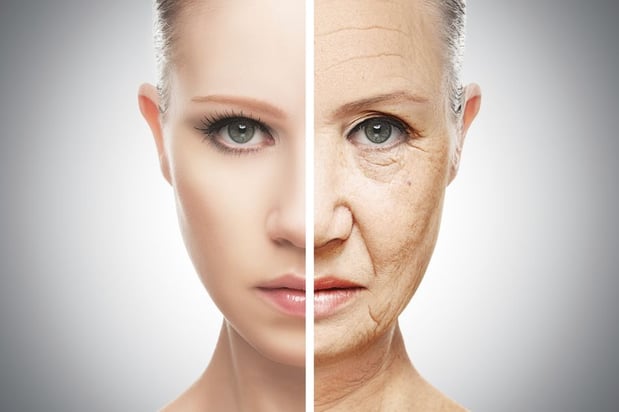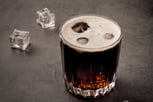Most of us are educated on alcohol’s tendency to damage our liver and kidneys. But there’s one organ that is easily overlooked in the discussion of how alcohol impacts our health. While drinkers may consume alcohol for its “relaxation” inducing properties, its effects extend far beyond limber muscles and an impaired state of mind. Short and long-term drinking also impacts one of our most vital, and visible, organs—our epidermis.
Here are the top four ways your skin suffers after drinking alcohol.
1. Dehydration
Like all diuretic fluids, alcohol dehydrates the body. So what exactly does that mean for your skin?
The average adult body is between 50 to 75 percent water, and our skin alone is composed of 64 percent water. Water is responsible for protecting and regenerating cells in our body. And when our skin (and body) is healthy and hydrated, cell generation happens fast. As we begin to lose fluids, our body slows down regeneration to protect other parts of our body. When we live in a continuously dehydrated state our body can shut down. Dehydration symptoms usually first appear on our skin and result in the following:
-
Dry, cracked lips
-
Flaky skin
-
Bigger pores
-
Increased wrinkles and imperfections
2. Swelling
Have you ever had a great night’s sleep and still wake up puffy-eyed? This could be due to alcohol consumption. The speed at which alcohol exits our bloodstream is determined by our age. The older we are, the longer it takes. So while a twenty-something can have a drink leave the body within 24 hours, a forty-something can take as long as 3 to 7 days. This is why even if you consume alcohol on non-consecutive days—for example, Monday and Wednesday—you still may feel bloated. After drinking alcohol swelling occurs in the face and other parts of the body. This is due to blood rushing to various areas that are triggered by hormones in alcohol.
3. Inflammation
Similar to swelling is inflammation. This one is not pretty. Inflammation is reddening of certain parts of the body and most frequently occurs on the face. That means blemishes stick out more as they may become reddened or worsen from the chemicals and hormones in alcohol. While we are young and as we drink less, inflammation reduces in a fairly short time. It may take hours, days, or weeks, but as we decrease our alcohol intake our bodies become more efficient in healing. Blood circulates faster, freer, and more easily for a more even texture and skin tone. However, if we continue to drink excessively or at the same rate as we age, our inflammation can become constant. This is can lead to an extreme and indefinite case of inflammation, otherwise known as Rosacea. This skin condition comes in different forms and is most common on the face. It is usually seen on the apples of cheeks and foreheads. It can also be easily mistaken for a rash and, in some extreme cases, may cause facial disfigurement.
4. Collagen Degeneration
One of the things humans dread most is wrinkles. Alcohol increases the production of wrinkles by destroying collagen in our skin. Collagen is responsible for making our skin flexible. When we’re healthy, our skin can be pulled and bounce right back. Of course, this changes naturally as we age. Those who regularly consume alcohol, however, can expect an onset of early aging due to faster collagen reduction.
If you’re new to recovery, starting over, or still in the throes of alcoholism, know that it’s never too late to turn things around. Over time, long-term excessive drinking will cost you not only your looks but also your job, your reputation, people you care about, your happiness, and possibly even your life.
Not ready to pay up? Browse our list of alcohol detox centers or call 800-772-8219 to inquire about specialists in your area.








